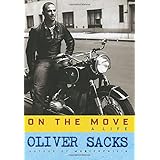hxxps://www.washingtonpost.com/news/style-blog/wp/2015/08/30/oliver-sacks-psychedelic-drugs-taught-me-what-the-mind-is-capable-of/












By Jessica Contrera August 30, 2015
[Are psychedelic drugs the new cure for PTSD and depression?]
“When people die, they cannot be replaced,” Oliver Sacks recently wrote. “They leave holes that cannot be filled, for it is the fate — the genetic and neural fate — of every human being to be a unique individual, to find his own path, to live his own life, to die his own death.”
The distinguished neurologist and writer died Sunday at age 82. For many devotees, he has left that hole that cannot be filled — except, perhaps in part, with his work.Sacks was known for turning the medical problems of distant strangers into gripping narratives filled with the kind of lessons that stick with readers long after the final page is read.
As they read about the minds of his patients, fans found themselves wondering about Sacks’s own mind. With his 2012 book “Hallucinations,” they learned that it was once a mind on drugs. Not just the teenage experimentation, marijuana kind of “on drugs.” For a time in his adult years, Sacks was an addict. LSD and amphetamines regularly coursed through his now-lauded brain.
His heavy experimentation began in 1962, as he was starting his neurology residency in San Francisco.
“Neurochemistry was plainly ‘in,’ and so — dangerously, seductively, especially in California, where I was studying — were the drugs themselves,” Sacks wrote in the New Yorker.
He would take drugs by himself on Sunday mornings. Once he hallucinated that two of his friends had come over to visit. He didn’t realize they weren’t there until he finished cooking hthem breakfast. Minutes later, he thought a helicopter was landing in his apartment. Then he found himself discussing mathematical paradoxes with a spider.Sacks kept up the drug use for four years, until a chloral hydrate withdrawal sent him into a 96-hour hallucination. Soon after, he began writing books.
“The joy I got from doing this was real — infinitely more substantial than the vapid mania of amphetamines — and I never took amphetamines again,” he wrote.
Careful not to appear as if he was encouraging drug use, Sacks warned against amphetamines especially, saying he thinks they are the most dangerous drugs.
But with psychedelic drugs such as LSD, Sacks had said that he was glad he tried them.
“It taught me what the mind is capable of,” he said in an interview with New Scientist magazine.
“I think it made me more open to some of my patients’ experiences. For example, there is something which I think of as stroboscopic vision, or cinematic vision, where, instead of seeing a scene continuously, you see a series of stills.”
He had that same experience when he was on LSD.
“So rather than saying nonsense, or closing my ears, I am open to these descriptions.”
It was cancer, not drugs, that led to Sacks’s death. He lived with a tumor in his eye for nine years before his cancer spread to his liver.Read more about his life and work here.